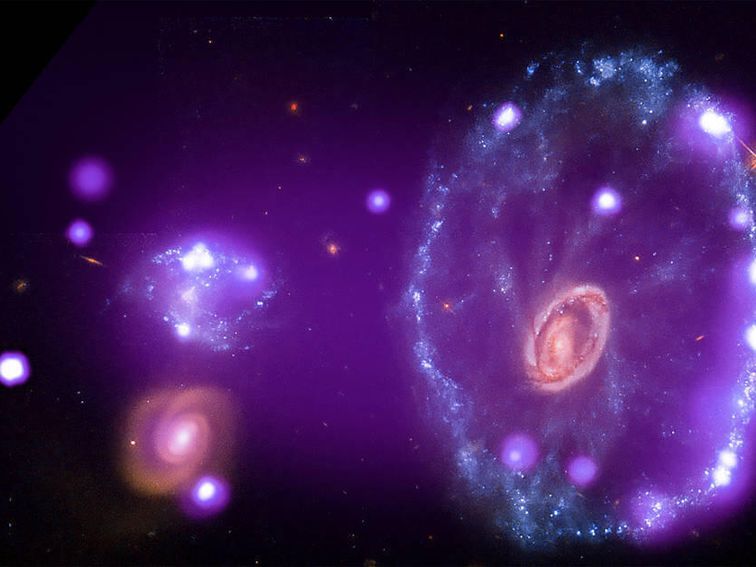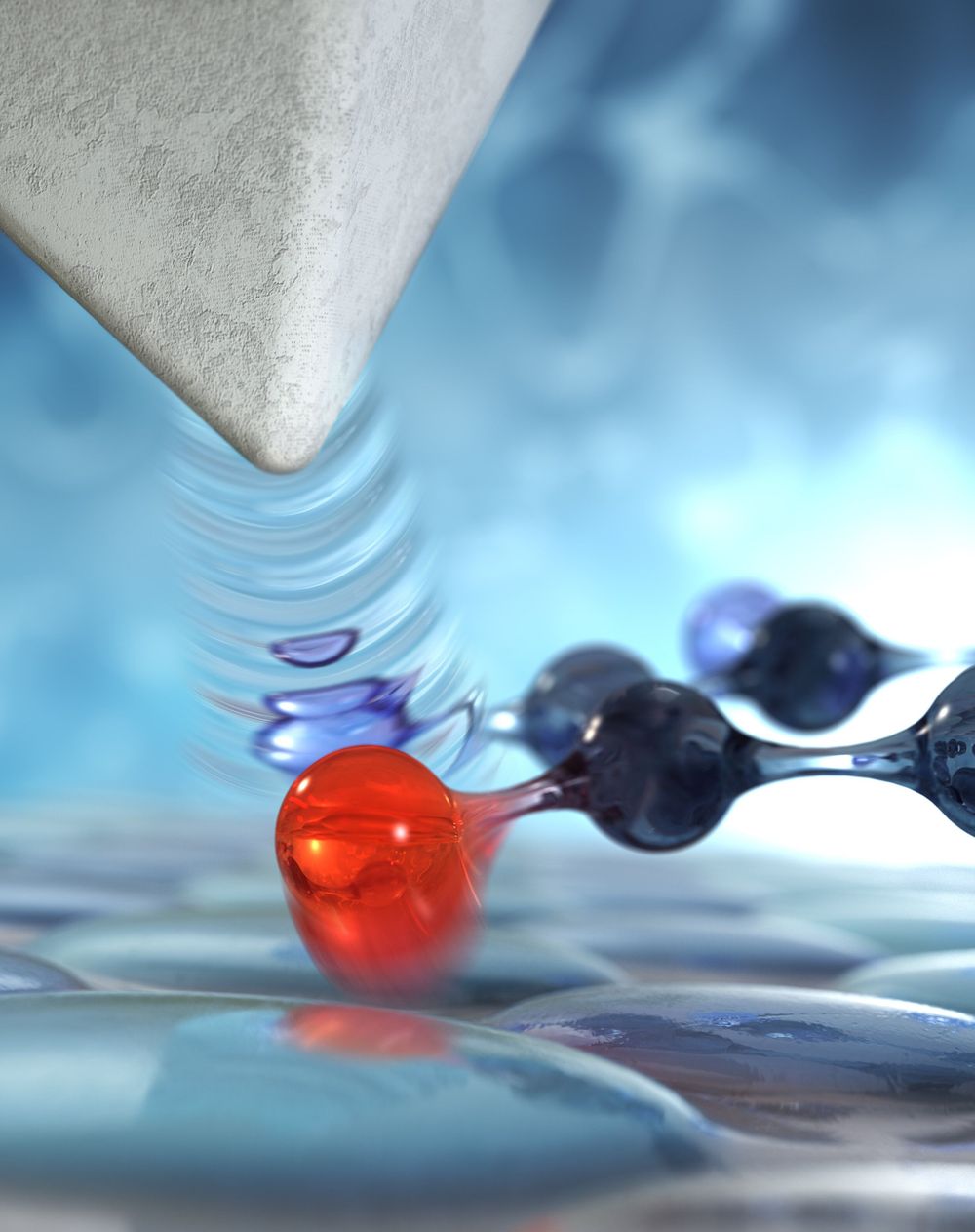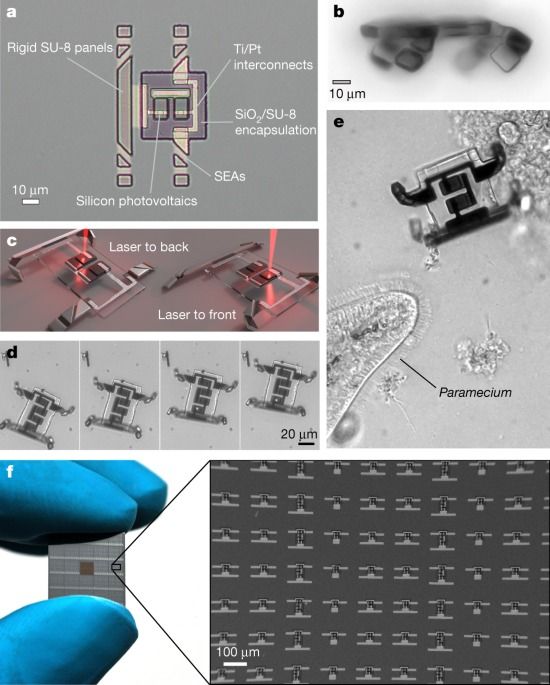The concept of quantum communication, with security guaranteed by the laws of physics, took the worl.
If you do not yet have an account, please register so you can.

The concept of quantum communication, with security guaranteed by the laws of physics, took the worl.
If you do not yet have an account, please register so you can.


Scientists from Regensburg and Zurich have found a fascinating way to push an atom with controlled forces so quickly that they can choreograph the motion of a single molecule within less than a trillionth of a second. The extremely sharp needle of their unique ultrafast microscope serves as the technical basis: It carefully scans molecules, similar to a record player. Physicists at the University of Regensburg now showed that shining light pulses onto this needle can transform it into an ultrafast “atomic hand.” This allows molecules to be steered—and new technologies can be inspired.
Atoms and molecules are the constituents of virtually all matter that surrounds us. Interacting with each other according to the rules of quantum mechanics, they form complex systems with an infinite variety of functions. To examine chemical reactions, biological processes in a cell, or new ways of solar energy harvesting, scientists would love to not only observe individual molecules, but even control them.
Most intuitively, people learn by haptic exploration, such as pushing, pulling, or tapping. Naturally, we are used to macroscopic objects that we can directly touch, squeeze or nudge by exerting forces. Similarly, atoms and molecules interact via forces, but these forces are extreme in multiple respects. First, the forces acting between atoms and molecules occur at extremely small lengths. In fact, these objects are so small that a special length scale has been introduced to measure them: 1 Ångström (1Å = 0.000,000,000,1 m). Second, at the same time, atoms and molecules move and wiggle around extremely fast. In fact, their motion takes place faster than picoseconds (1 ps = 0.000,000,000,001 s). Hence, to directly steer a molecule during its motion, a tool is required to generate ultrafast forces at the atomic scale.

Researchers have discovered how a protein in plant roots controls the uptake of minerals and water, a finding which could improve the tolerance of agricultural crops to climate change and reduce the need for chemical fertilizers.
The research, published in Current Biology, shows that members of the blue copper proteins family, the Uclacyanins are vital in the formation of Casparian strips. These strips are essential structures that control mineral nutrient and water use efficiencies by forming tight seals between cells in plants, blocking nutrients and water leaking between.
This is the first evidence showing the implications of this family in the biosynthesis of lignin, one of the most abundant organic polymers on earth. This study reveals that the molecular machinery required for Casparian strip lignin deposition is highly ordered by forming nano-domains which can have a huge impact on plant nutrition, a finding that could help in the development of crops that are efficient in taking in the nutrients they need.
Grab a buddy and try this! 🏃💪
A new display produces stunning 3D images, by illuminating a small plastic bead which is levitated using ultrasound. This allows the display to be visible as well as to create audible sound and tactile feedback. Nature reporter Lizzie Gibney travels to the University of Sussex in the UK to learn more.

Fifty years of Moore’s law scaling in microelectronics have brought remarkable opportunities for the rapidly evolving field of microscopic robotics1,2,3,4,5. Electronic, magnetic and optical systems now offer an unprecedented combination of complexity, small size and low cost6,7, and could be readily appropriated for robots that are smaller than the resolution limit of human vision (less than a hundred micrometres)8,9,10,11. However, a major roadblock exists: there is no micrometre-scale actuator system that seamlessly integrates with semiconductor processing and responds to standard electronic control signals. Here we overcome this barrier by developing a new class of voltage-controllable electrochemical actuators that operate at low voltages (200 microvolts), low power (10 nanowatts) and are completely compatible with silicon processing. To demonstrate their potential, we develop lithographic fabrication-and-release protocols to prototype sub-hundred-micrometre walking robots. Every step in this process is performed in parallel, allowing us to produce over one million robots per four-inch wafer. These results are an important advance towards mass-manufactured, silicon-based, functional robots that are too small to be resolved by the naked eye.
The InMotion V11 takes the general concept of an electric unicycle and then ratchets the insanity up to “11” with a gigantic motor and true air suspension.

Artificial Intelligence research is making big strides. But in practice?
There are several buckets you can use to categorize AI, one of which is the BS bucket. Within, you’ll find simple statistical algorithms people have been using forever. But there’s another bucket of things that actually weren’t possible a decade ago.
“The vast majority of businesses are still in the early phases of collecting and using data. Most companies looking for data scientists are looking for people to collect, manage, and calculate basic statistics over normal business processes.”
Today we launch our Register Debates in which we spar over hot topics and YOU decide which side is right – by reader vote.

The digital yuan and the existing systems are not mutually exclusive. Most consumers are likely to continue using their Alipay or WeChat Pay platforms – or both systems, in many cases – for their multitude of applications and services that have evolved from simple payments to loans, asset management and money-market investments.
China already boasts more digital mobile payment users than anywhere else on earth, in a US$49 trillion market almost 500 times bigger than in the United States. The People’s Bank of China governor Yi Gang wants to hasten the digital transformation of China’s currency and economy.